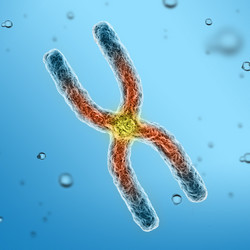Chromosome instability in cancer
Under normal conditions, when cells divide they distribute their genomic material equally between daughter cells. However, cancer cells exhibit chromosomal instability (CIN), a form of genetic instability that results in an impaired segregation of chromosomes during mitosis. This leads to cells with an incorrect number of chromosomes, a condition known as aneuploidy. Accumulating evidence from other studies suggested that the outcome of aneuploidy was context-dependent and that it could act in an oncogenic or a suppressive manner. The EU-funded CINCANCER (Dissecting the role of chromosome instability in cancer) project set out to clarify the impact of aneuploidy on tumourigenesis. Their work focused on the mitotic checkpoint protein Mad2, a regulatory molecule that restrains progression through the transition from metaphase to anaphase of the cell cycle. Researchers observed that overexpression of Mad2 induced aneuploid tumours in vivo in a mouse model of lung tumourigenesis where Mad2 specifically cooperated with the oncogene Kras. In this model, CIN facilitated escape from the dependence of tumour cells on their initiating lesion for survival, known as oncogene addiction. In breast cancer, however, Mad2 overexpression was detrimental to primary tumour formation but contributed to cancer relapse even after targeted therapies. The scientists proposed that CIN-potentiated oncogene independence was probably a result of cancer cell susceptibility on acquisition of additional mutations and evolution to become independent of the initiating lesion. Alternatively, cancer cells could be already independent before treatment. CINCANCER research work unveiled interesting aspects of the mechanisms that leads to CIN in cancer and how this instability can function to promote cancer onset or relapse. Understanding the mechanism behind this phenomenon is expected to improve future cancer therapies.







